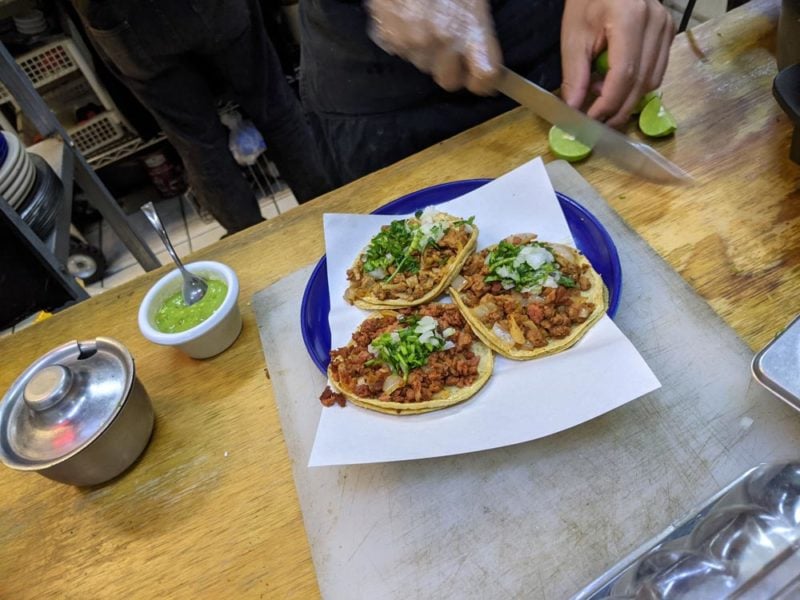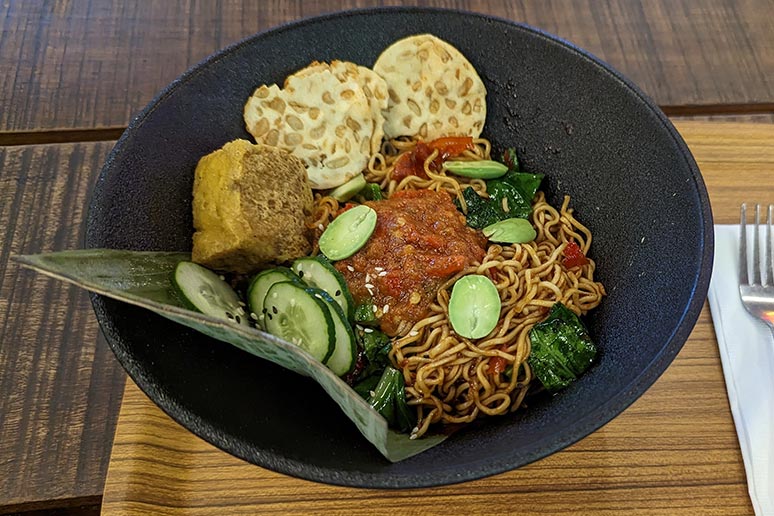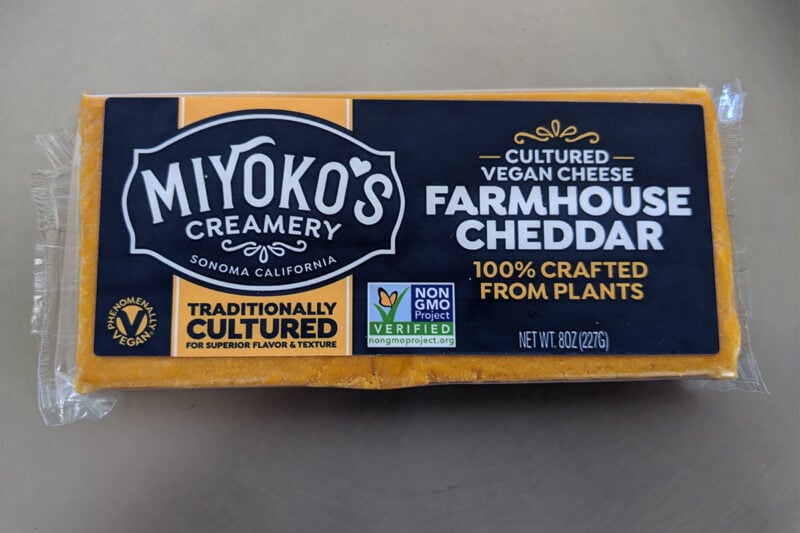Ahimsa can reshape your life, while elevating many conversations about vegan-related topics.
The term is easily grasped yet deceptively nuanced and powerful. In a superficial sense, ahimsa means non-violence, but the word’s true meaning goes much deeper.
What is Ahimsa?
Ahimsa’s etymology traces back to Sanskrit. Although a dead language, Sanskrit is still widely studied by religious scholars. That’s largely because the two foundational texts of hinduism—the gitas and the upanishads—were both written in Sanskrit.
In Sanskrit, himsa means harm, and ahimsa means its opposite. Note that the verb harm is rarely used passively. It’s nearly always expressed in an active sense, for instance: “John harms Jeff.”
So, just like himsa, ahimsa implies activity. Sitting around doing nothing may not cause any harm, but it is not ahimsa. The word specifically denotes taking action to prevent harm. With this active sense in mind, ahimsa is sometimes referred to as: “dynamic harmlessness.”
Just as violence takes countless forms, so too does non-violence, and so there are innumerable ways to practice ahimsa. You might transition to a vegan diet, volunteer at your local animal shelter, or strive to be kinder to your family. Anything you do to prevent others from suffering qualifies as an expression of ahimsa.
The Power of Ahimsa
Mahatma Gandhi based his political philosophy on ahimsa. He demonstrated that non-violent resistance can overcome great armies, and his millions of followers expelled British imperialism from India without firing a single shot.
Gandhi thereby proved that ahimsa could function as the lynchpin for political liberation. Prior to Gandhi, the concept was regarded purely as a route toward spiritual liberation.
To understand ahimsa’s connection to Eastern spirituality, it’s helpful to consider a few related concepts: karma, samsara, and vasanas. Let’s briefly consider how these ideas interconnect.
Karma is the belief that anything you do, whether kind or unkind, ultimately comes back to you. Steal and you’ll get robbed. Lie and you’ll be lied to. On the flip side, your virtues come back for you to enjoy: if you’re a devoted parent, your karma will lead you to reincarnate into a family with comparably excellent parents. Your fate is thereby determined by the virtues and moral lapses you’ve exhibited over the course of your life.
Up until the moment of liberation that accompanies enlightenment, karma produces a never-ending chain of cause and effect that keeps you on the wheel of reincarnation known as samsara. Hinduism affirms that every soul is subject to innumerable births and deaths. And our particular negative tendencies, called vasanas, chain us to samsara by provoking actions that generate new karma. You can easily envision how this plays out in people who are predisposed to dishonesty, violence, gluttony, promiscuity, and so forth.
Under this spiritual framework, a commitment to ahimsa can eventually stop the cycle of aggression and victimization that keeps the wheel of samsara turning. With your negative karmas sharply curtailed, your mind becomes less agitated. You thereby become increasingly likely to receive the grace that leads to liberation. Ultimately you conquer your vasanas and step off the wheel of samsara.
The connection between between dietary choices and ahimsa was too obvious for ancient Hindus to ignore. You can credit beliefs surrounding karma and ahimsa for making vegetarianism commonplace throughout India for millennia. If you’re interested, my guide to vegan Indian foods explains the subcontinent’s heavy reliance on dairy products despite its embrace of ahimsa.
Jains and Ahimsa
In addition to its influence on Hinduism, ahimsa serves as the primary tenet of another world religion. More than four million people worldwide follow Jain Buddhism. Jain monks famously carry brooms so they can sweep insects from the path before them and thereby avoid inadvertently stepping on them.
Anyone acquainted with slaughterhouses and factory farms can see that ahimsa is consistent with a vegetarian diet. And as you look at the cruelties tied to eggs, dairy products, wool, and leather, you can likewise see that embracing ahimsa could provide strong motivation to adopt a vegan lifestyle.
Despite their devotion to ahimsa, the Jain community’s embrace of veganism is inconsistent. While many Jains follow a vegan lifestyle, many don’t. Something like half of practicing Jains are vegan while the remainder consume dairy products.
The American Vegan Society
It’s fair to say that ahimsa provides the most important ethical framework for veganism. In fact, ahimsa directly inspired the formation of the American Vegan Society, the first vegan advocacy organization in the United States. Its founder, H. Jay Dinshah, frequently pointed out the many interconnections between veganism and ahimsa.
It’s impossible to overstate the degree to which Dinshah linked the moral basis of veganism to ahimsa. Upon founding the Society in 1960, he gave it the motto, “Lighting the way with ahimsa.” He also named the Society’s magazine Ahimsa. Additionally, he wrote three books that contained ahimsa in their titles.*
Dinshah defined ahimsa in vegan-centered terms that fit into an expansive ethical framework. His definition overlaps significantly with the five yamas laid out in Patanjali’s Yoga Sutras.
Incorporating Ahimsa into Vegan Activism
Ahimsa may currently be an obscure concept throughout most of the world, but this was also the case for veganism in the 1980s. If you’re passionate about vegan topics, you’ll probably find it worthwhile to insert ahimsa into more conversations. It’s a simple but potent approach to life, and it meshes nicely with the animal protection concerns that many vegans share.
One of the great virtues of ahimsa is that people readily acknowledge its merits. Really, who could object to living in a manner that prevents violence? This is the world’s easiest sales job, since most people are naturally receptive to incorporating elements of ahimsa into their lives.
By contrast, veganism begins with a daunting requirement: to get on board you must rid your diet and lifestyle of every bit of meat, dairy products, eggs, honey, wool, and so forth. Long-time vegans recognize how easy this is, but to the uninitiated veganism may seem like an extreme-sounding commitment. The idea of eating nothing but plant-based foods is too much for many people to even consider.
Ahimsa can therefore serve as a fantastic foot-in-the-door for vegan advocates. Once someone understands the basics of ahimsa, they’ll probably be far more receptive to considering the many advantages of a vegan lifestyle. So maybe vegan activists would produce better results if we sell the ahimsa first and then sell the tofu.
The thinking behind ahimsa informs many of the animal protection movement’s most effective campaigns. Open rescues and slaughterhouse vigils share common ground with Gandhi’s salt march. All are examples of passive resistance that incites the opposition to overreact and thereby lose public support.
The Personal Benefits of Ahimsa
On top of its other merits, ahimsa can inspire you to become a more persuasive activist. It can encourage you to refine your character and, in increasingly subtle ways, purge your temperament of aggressive qualities. Gandhi recognized that integrity and good character are indispensable components of effective advocacy. He often referred to satyagraha, which translates to, “soul force,” and asserted that people who have lots of it are more likely to influence the behavior of others. If you’ve ever rejected sensible-sounding arguments from someone you didn’t respect, you have already witnessed the importance of satyagraha.
We’ve all met vegans who carry inner demons like anger, who are quick to judge others, or are prone to dishonesty. Over time, an embrace of ahimsa will polish away a variety of imperfections of character. Its practice inexorably moves a person into alignment with integrity, kind speech, and empathy.
While this essay focused on ahimsa’s relation to veganism, the topic is worthy of study on its own. Certainly the world would grow far kinder if more people knew about ahimsa and conscientiously applied it to their lives.
For further reading: please see my “Why Go Vegan?” and “What is a Vegan?” essays as well as my Vegan’s Guide to Cults.
—
Endnote:
*These three books written by Dinshah are: Here’s Harmlessness: An Anthology of Ahimsa; Health Can be Harmless (An Ahimsa Book); and Out of the Jungle: a Logical and Rational Presentation of the Overwhelming Case for life—Ahimsa—Veganism.














